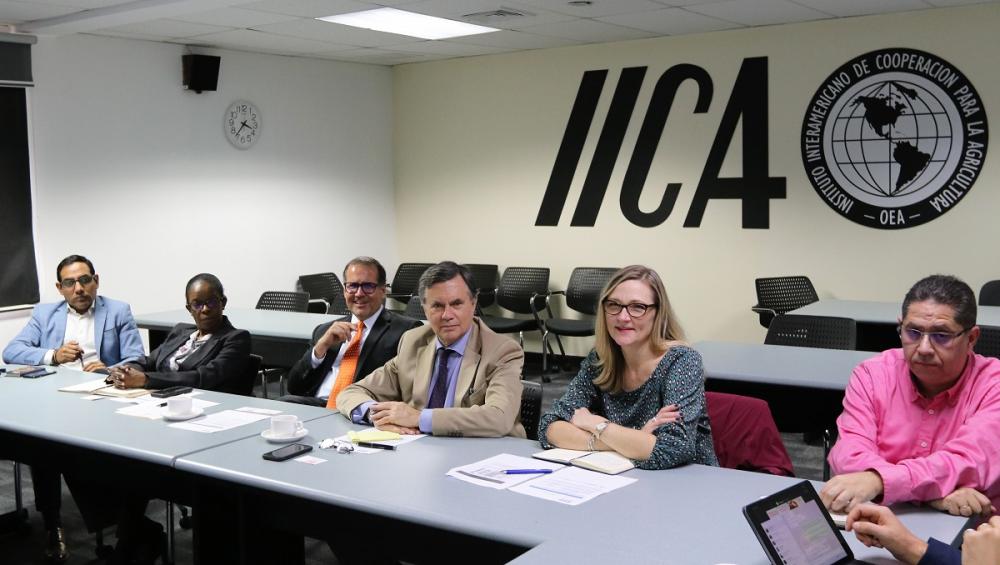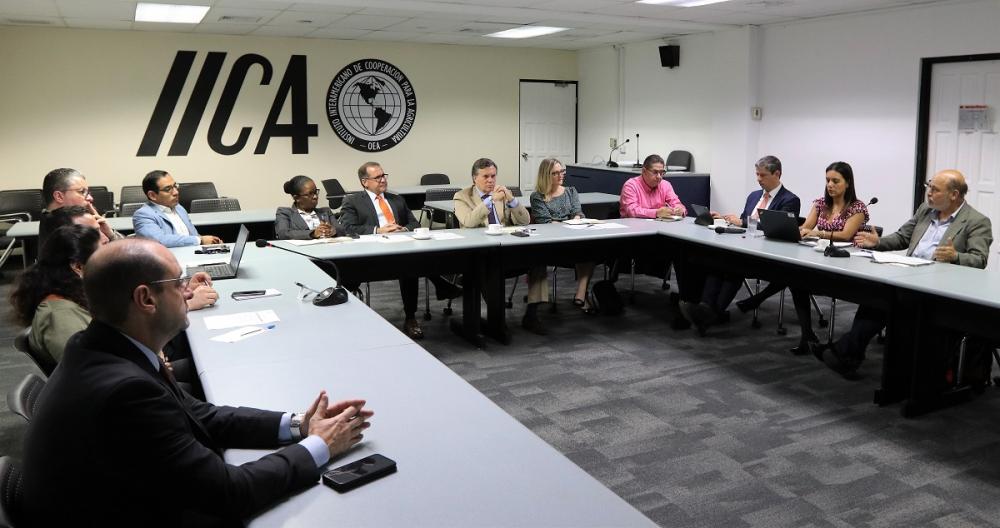IICA and the International Potato Center will work together on an agenda focused on agrobiodiversity, resilience and food and nutritional security

San Jose, November 13, 2019 (IICA). The Inter-American Institute for Cooperation on Agriculture (IICA) and the International Potato Center (CIP) will join efforts to take advantage of their knowledge and experience in agricultural and environmental topics to benefit the countries of Central America, the Caribbean and the Andean region.
CIP’s Director for Latin America and the Caribbean, Ginya Truitt, and the Center’s Research Coordinator, Claudio Velasco, held a meeting in Costa Rica with the Director General of IICA, Manuel Otero, and other institutional authorities, to explore areas for cooperation on a joint work agenda.
Actions associated with agro-biodiversity, resilience to climate change, food and nutritional security, migration, productivity, research, development and innovation will be included in the work plan to be defined at the end of this year.
“Our topics are highly complementary, according to the focus of each institution. This joint effort opens the doors to opportunities to show that agriculture is not something separate from people’s daily lives, and will contribute solutions to problems linked to the environment, climate, production, food and migration, among other issues,” Truitt explained.
Otero pointed out that both institutions agree that it is essential to develop an increasingly technified agriculture that promotes area-based or territorial development. He also emphasized the importance of creating opportunities to improve the livelihoods of family farmers in a context of respect for natural resources.
“It was clearly evident that there are many areas of complementarity and convergence in terms of the future of agriculture. IICA is more than willing to collaborate and we want to go beyond this, to search for resources and generate joint projects with a regional impact,” added the Director General of IICA.
Other matters of interest discussed during the meeting were the topics of big data, digital extension, gender and rural youth.

Since May 2017, when IICA and the CIP signed a framework agreement for the design and implementation of technical cooperation projects in different areas of agricultural research and technology, both institutions have maintained close collaborative ties.
The CIP is one of the world’s leading scientific research centers dedicated to research on potato, sweet potato, cassava and other root and tuber crops, with the aim of taking full advantage of their nutritional capabilities to benefit developing countries. The Center was founded in 1971 and is headquartered in Lima, Peru.
More information:
Miguel Angel Arvelo, IICA Chief of Staff.
miguel.arvelo@iica.int